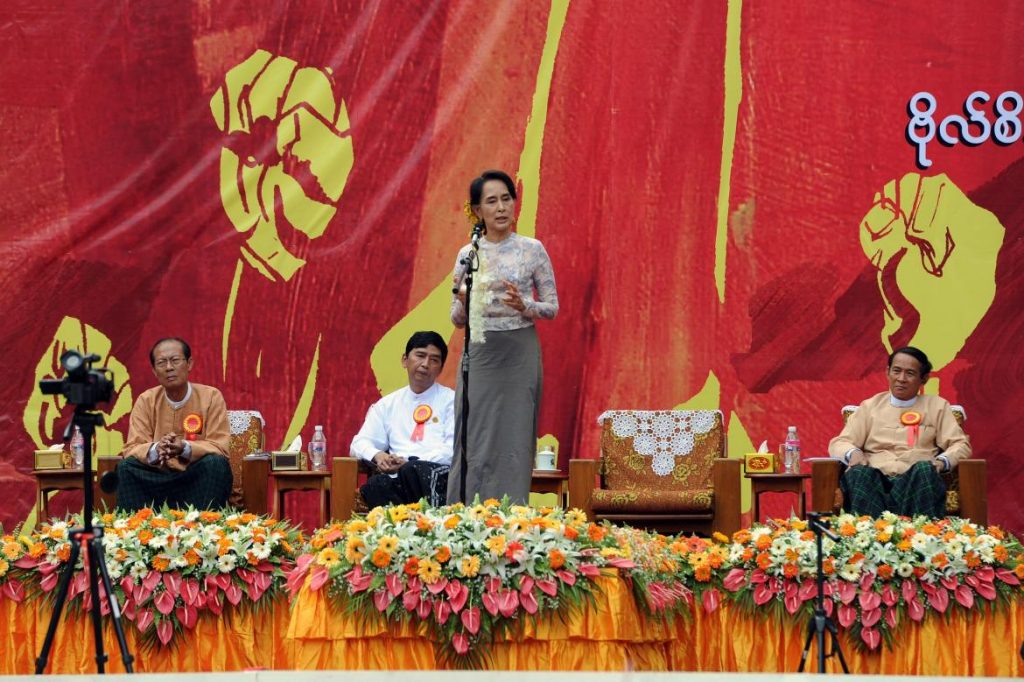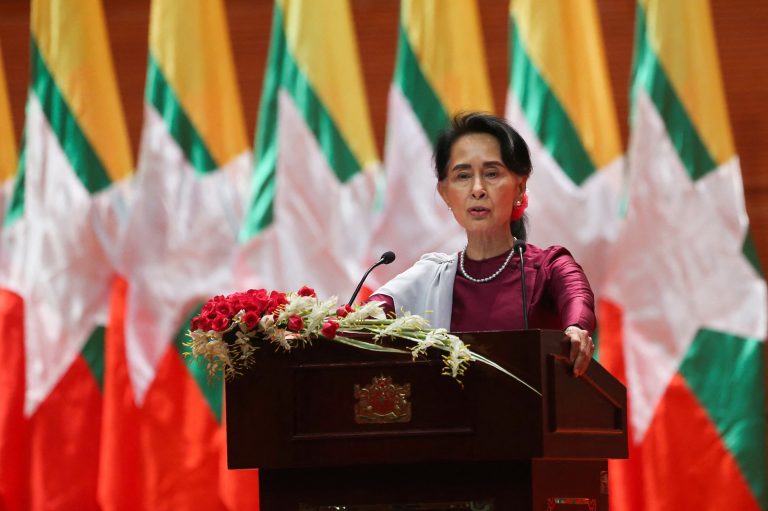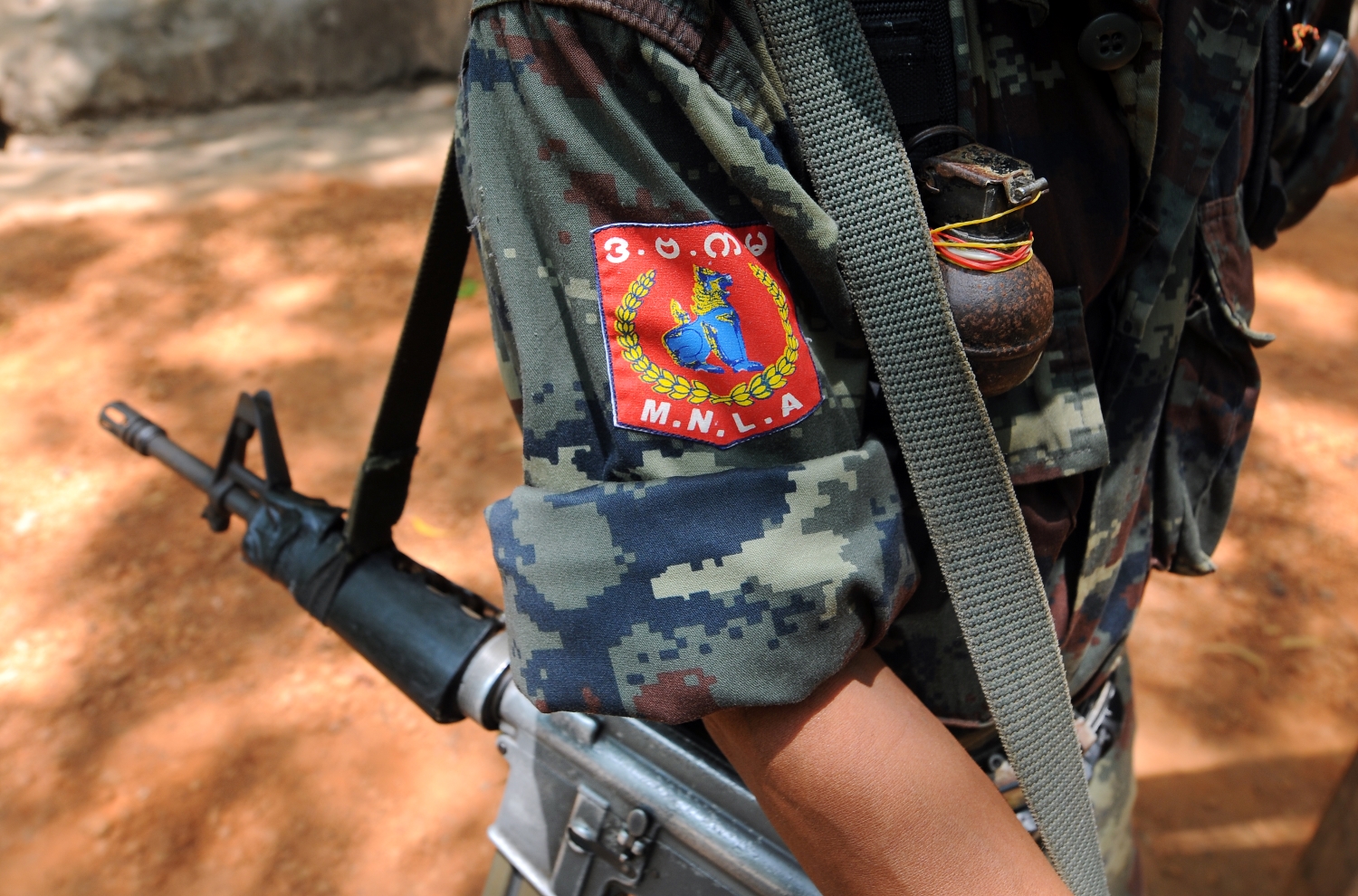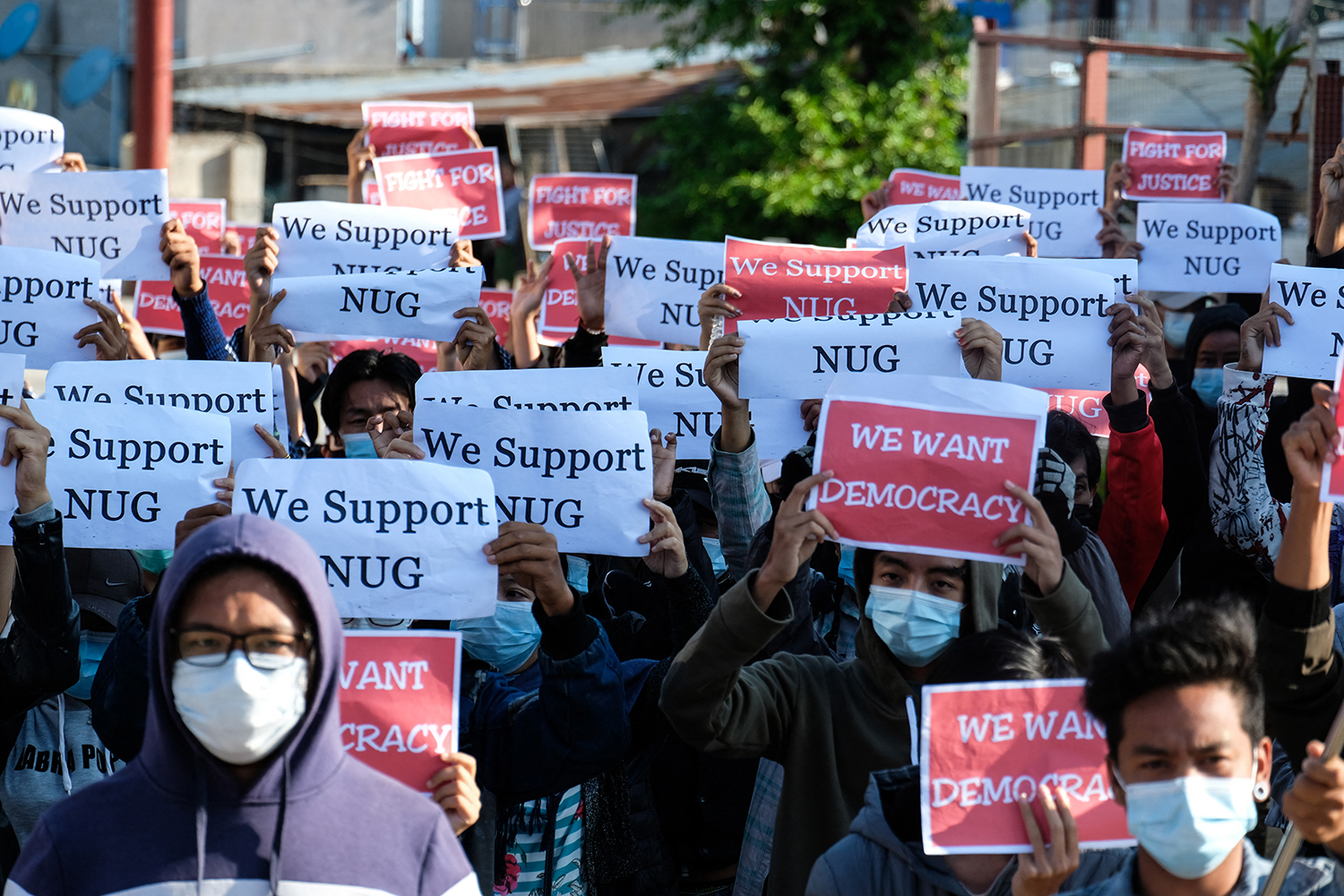Constitutional reform was once the overriding priority of the National League for Democracy but the party has put the issue on the back burner since it formed government.
By SITHU AUNG MYINT | FRONTIER
SINCE THE National League for Democracy government came to power more than a year ago, State Counsellor Daw Aung San Suu Kyi has given top priority to the peace process.
Before and after the NLD entered parliament in the 2012 by-elections, and during the campaign for the 2015 general election, one of the party’s main promises was to amend the military-drafted 2008 Constitution. Now this election promise is hardly heard.
Some stakeholders and analysts have been critical of Aung San Suu Kyi’s apparent decision to extend the timetable for constitutional reform. Among them is U Khun Htun Oo, chairman of the Shan Nationalities League for Democracy, who has said that constitutional reform is essential to achieve national reconciliation. At the meeting of the Committee for Shan State Unity in Chiang Mai, Thailand, earlier this month, Khun Htun Oo gave another reason for amending the constitution, saying it had led to the emergence of two governments – the Tatmadaw and the one appointed by the NLD-dominated parliament.
This week I would like to discuss whether the NLD under Aung San Suu Kyi, who once prioritised constitutional reform, has changed it policy.
Support more independent journalism like this. Sign up to be a Frontier member.
The 2008 Constitution was drafted by the junta with the intention of ensuring that the country was ruled by former generals, by giving the military 25 percent of the seats in the Union and state and regional parliaments, and a veto over constitutional reform in the Pyidaungsu Hluttaw. However the split in the military-backed Union Solidarity and Development Party government ahead of the 2015 election, and a free and fair vote, enabled the NLD to achieve a landslide victory.
During the USDP government of President U Thein Sein that came to power after the rigged 2010 general election, there was much discussion about amending the constitution. The government, the Tatmadaw, the USDP under the leadership of Thura U Shwe Mann, and the NLD led by Aung San Suu Kyi, all talked about amending the constitution, but they could not agree on when and how.
The approach taken by the Tatmadaw and Thein Sein’s government was clear and it hinged on the peace process. The negotiations launched with ethnic armed groups for a national ceasefire were to be followed by a political dialogue process that would eventually lead to constitutional reform. In June 2015, Shwe Mann, in his capacity as both USDP chair and Pyithu Hluttaw speaker, and acting with the support of the NLD, engineered a failed attempt to amend the constitution, including the clauses that gave the Tatmadaw its veto power and which prevented Aung San Suu Kyi from being considered for the presidency.
After three days of debate, the move was defeated with the support of the unelected military bloc. Shwe Mann’s decision to allow the debate earned the lasting enmity of the Tatmadaw and USDP hardliners and contributed to his dramatic ouster as party chairman two months later.
Since the NLD government took office there has been little talk of constitutional reform. However, Aung San Suu Kyi did raise the issue during her recent European tour when she addressed about 300 Myanmar in London. She told her audience that the NLD had “unswervingly” opposed the constitution since it was approved by a referendum in May 2008 because it was a violation of the norms of democracy. “However, the most important thing in our country is the rule of law, because without it the country will not be stable. An unstable country cannot have peace,” the State Counsellor said.
“The peace process and constitutional reform are connected. This is also included in the Nationwide Ceasefire Agreement. Under the 21st Century Panglong Union Peace Conferences the constitution must be amended to be able to build a Federal Democratic Union of Myanmar,” she said.
Her comments indicate that constitutional reform is unlikely anytime soon because it will depend on a successful outcome of the 21st Century Panglong conferences and that won’t happen until there is an agreement among all ethnic armed groups that has so far proved elusive despite years of talks.
In other words, Aung San Suu Kyi’s attitude towards constitutional reform has changed and her present policy is identical to that of former president Thein Sein.
The peace process will not achieve success until there is unanimous agreement among all stakeholders, including ethnic armed groups. The present impasse suggests that could be three or four years away.
The delays in the peace process encountered by the previous and current governments are partly because of the constitution. Amending the constitution can contribute towards building peace and is not an impossible task. If the Tatmadaw and the NLD agreed, anything in the constitution could be amended.
Instead of waiting for a peace agreement supported by all armed groups, Aung San Suu Kyi should establish a joint committee with the Tatmadaw to consider constitutional reform – and do so immediately.







